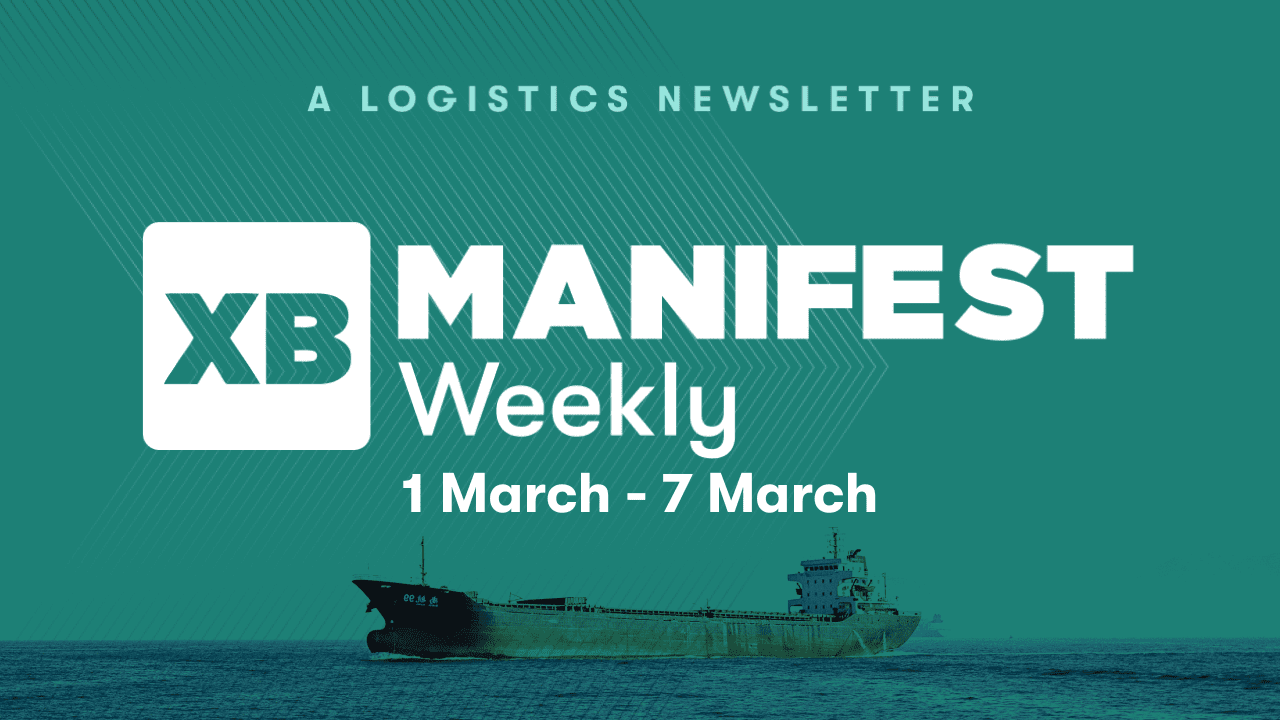In this article
What we’re covering
- How US importers are fighting the millions of dollars in fees imposed by the world’s largest ocean carriers ?
- This week’s featured news stories, including Tesla’s plans to invest a whopping $175 billion for growth ?
- Shippers are not just looking for low freight rates, but are more interested in stability despite disruptions as they renew contracts ?
- Logixboard’s featured content ?
IN THE NEWS
US Importers Make Use Of New Shipping Rules To Fight Hefty Late Fees
Throughout 2020-21, thanks to COVID-19-induced lockdowns and delays, supply chains across the globe faced massive disruptions. This disruptive trend continued in 2022, despite easing pandemic restrictions, due to events like the Russia-Ukraine conflict and other weather-related mishaps. Thanks to these disruptions, importers ended up paying hefty fees for delays in picking up and dropping containers, despite restrictions and lockdowns. Now in 2023, US importers are fighting the millions of dollars in fees imposed by the world’s largest ocean carriers with the help of a new federal law and a newly emboldened regulator.
Shippers of furniture, electronics, and clothing were blindsided during the Covid-19 pandemic when ocean carriers added large fees for delays in picking up and returning containers. These costs added up even when importers had no chance of moving the boxes due to circumstances beyond their control.
TOP HITS THIS WEEK
From The Manifest
LOGIXBOARD INSIDER
Ready to win bids and increase revenue this contract season? We’ve got just the thing
Check out our Sales Proposal Template to get a head start on your sales meeting prep
Look inside for customizable slides that address your customer’s needs and sell your strengths to win more business ?
WHAT’S HAPPENING AROUND THE WORLD
Featured News Stories
- Elon Musk’s Tesla spent around $28 billion to cement itself as the world’s most valuable car company. Tesla is now preparing to invest roughly five times that, a whopping $175 billion, as it strives to meet the next objective: Becoming the world’s largest car maker by volume.
- FIATA, the International Federation of Freight Forwarders Associations, issued a new call for shipping lines and terminals to restore container policies to pre-pandemic levels, including detention and demurrage fees. This will reflect the easing of the surge in container volumes and the decline of backlogs at the major ports.
- Amazon is shifting away from UPS and other carriers as it works to build its own logistics empire. While UPS’ priorities have shifted, Amazon’s capabilities have transformed. But both face obstacles that could complicate plans to reduce business with each other.
- FedEx has told rival UPS’s customers that any business FedEx onboards by March 31 will receive priority treatment from FedEx, in case of a Teamsters strike. FedEx urged UPS customers to take advantage of the near 30-day window to ensure they have committed capacity in the event of a labor disruption.
ON OUR RADAR
Shippers Prioritizing Stability in This Year’s Freight Contract Renewals
With spot rates fluctuating as a reflection of supply chain disruptions and dipping demand, shippers and carriers have been struggling to ensure that they don’t overpay for freight. Starting from the COVID-19 aftershocks, the supply chain has been volatile since 2020. Now in 2023, as the time for renewal of contracts comes up, shipping lines are desperate to “rekindle relationships,” get contracts signed and, MQC (minimum quantity commitments) agreed, to avoid being overly exposed to the spot market.
Xeneta’s XSI Asia to US west coast component slipped another percentage point this week, to $1,581 per 40ft, but lower FAK rates are widely available. For the US east coast, spot rates from Asia are tumbling fast – down to about $2,000 per 40ft – bringing into question the economics of the longer-transit, considerably more expensive, all-water trade lane for carriers serving the route.
Drewry’s WCI Asia to North Europe reading this week fell another 2%, to $1,593 per 40ft, albeit that FAK ‘market rates’ from all the main carriers are about $1,000 per 40ft. Mediterranean rates also continued to slide, with the WCI component declining 2%, to $2,477 per 40ft. Rate procurement managers and shipping executives fear signing a deal at high rates in case there is a crash in prices again.
As a result, contracts for shorter periods seem to be more in vogue. Several shippers have expressed concerns about the fragility of the Asia-Europe trade lanes. Many annual contract negotiations that normally happen in November and December have been put on the back burner while volatility in the market continues. Xeneta’s chief analyst, Peter Sand, believes that transatlantic rates will normalize within the next six months, though. Shippers are clearly not just looking for low freight rates, but are more interested in stability despite disruptions.
That’s all we’ve got for this week!
Thanks for reading,
The LXB team ✌️



